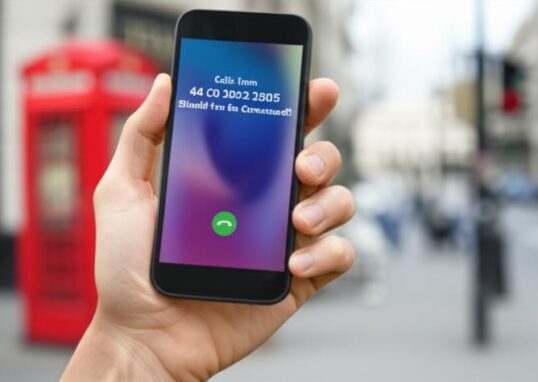
Dreaming of owning your own car in the UK? It’s a huge milestone for so many of us, right? But here’s the thing: for a big chunk of the population, especially our Muslim community, traditional ways of financing a car can feel a bit sticky. Why? Because of the clear prohibition of interest (also known as **riba**) in Islamic law. This ethical dilemma has really pushed the demand for Sharia-compliant financial products through the roof!
And guess what? **Halal Car Finance** has totally stepped up, becoming a crucial and super accessible solution. As we roll into 2025, the options for ethically acquiring a vehicle in the UK are more diverse and promising than ever, giving you clear paths to car ownership that truly align with deeply held religious principles.
So, what are we diving into today? We’ll explore the core tenets of Islamic finance, check out the leading Sharia-compliant car finance models available, and highlight the top providers, along with essential considerations for anyone applying in 2025. This article is your comprehensive guide to understanding this vital segment of the UK’s financial market, empowering you to make an informed and ethical decision on your journey to car ownership. It’s pretty amazing how achievable ethical car ownership is becoming, with transparent and principle-driven options going mainstream!
Understanding Halal Car Finance: Principles and Practice
Alright, let’s get down to brass tacks: what *is* **Halal Car Finance**, really? It all starts with grasping the fundamental principles of Islamic finance, which are distinct from your everyday banking practices. These principles aren’t just about avoiding interest; they’re about a much broader philosophy of ethical and socially responsible financial dealings. They ensure that transactions are fair, transparent, and actually contribute positively to society, perfectly aligning with an individual’s spiritual values.
It’s pretty cool to see the increasing availability of these financial products across the UK. It truly reflects a growing recognition of the Muslim community’s financial needs and, honestly, a broader shift towards more ethical financial models overall. In this section, we’re going to lay the groundwork by explaining the core prohibitions and foundational concepts that underpin Sharia-compliant vehicle acquisition, setting the stage for a deeper exploration of specific finance models. Ready to dive deeper?
The Prohibition of Riba (Interest) in Islam
Okay, first things first: **Riba**, commonly understood as interest, is a huge no-no in Islamic finance. This prohibition is explicitly mentioned in the Quran itself. Verses like Al-Baqarah 2:275 state, “Those who consume interest cannot stand [on the Day of Resurrection] except as one stands who is being beaten by Satan into insanity…”, as noted by Car Valley UK. So, what’s the big idea here? This foundational principle dictates that money shouldn’t be used to generate *more* money purely through its lending. It’s seen as exploitative and, well, simply unjust.
Think about how regular loans work: a lender charges you interest just for using their money. But Islamic finance? Totally different ballgame! It structures transactions around tangible assets and shared risk. The whole concept of interest is viewed as an arbitrary gain that can totally lead to inequality and economic instability, diverging sharply from the Islamic emphasis on equity and fairness in financial dealings. Therefore, any financial product that involves fixed or predetermined interest charges on borrowed money is considered impermissible. So, if it’s got fixed interest, it’s out.
Core Principles of Islamic Finance in Vehicle Acquisition
But it’s not *just* about avoiding Riba, you know? Islamic finance operates on several core principles when it comes to getting a car. This includes **risk-sharing**, where both the financier and you, the customer, share the risks and rewards associated with an asset. This is a pretty big contrast to conventional lending, where the lender bears little to no risk once the loan is disbursed – they just hand over the cash and pretty much wash their hands!
Plus, here’s another big one: Islamic finance requires transactions to be **asset-backed**. This means that financial agreements must relate to real, identifiable assets, like a car, rather than merely involving the exchange of money for money. **Transparency** and **ethical dealings** are also paramount, ensuring that all parties fully understand the terms of the agreement and that no party is exploited. This commitment to clarity and fairness underpins all Sharia-compliant car deals in the UK, making them a preferred choice for many.
Key Sharia-Compliant Car Finance Models in the UK
Okay, so you get the principles. Now, let’s talk about the *how*. The UK market actually has some pretty neat Sharia-compliant models for car finance, each structured to adhere strictly to Islamic principles. These models provide practical alternatives to conventional loans, allowing individuals to acquire vehicles without engaging in interest-based transactions. Understanding the mechanics of each model is crucial for making an informed decision that aligns with both your financial needs and ethical considerations.
It’s genuinely impressive how Islamic finance has innovated, adapting traditional financial products into permissible forms. This ensures that individuals can navigate modern economic landscapes while still upholding their faith. These models truly demonstrate how financial ingenuity can meet religious requirements, offering viable pathways to car ownership. Pretty clever, right?
Murabaha (Cost-Plus Sale)
First up, we have **Murabaha**, and it’s super popular here in the UK as one of the most widely used Sharia-compliant car finance models. Here’s how it generally plays out: the financier (the bank or company) actually purchases the car from the dealership or seller first. Then, the financier sells the car to you, the customer, at a pre-agreed higher price, which includes a predetermined profit margin for the financier. That extra bit? That’s their profit for helping you out! This total agreed price is then paid by you in fixed monthly instalments over a specified period.
Here’s the kicker: no additional interest is charged on the outstanding amount; the profit is baked right into that initial sale price. This structure ensures compliance with Islamic principles by making it an asset-backed sale rather than an interest-bearing loan. As BuyaCar points out, the cost of lending is added upfront, meaning you, the customer, are aware of the total cost from the outset. Talk about transparency, right? It’s inherent in this Islamic car finance UK model.
Ijara (Leasing/Rental)
Next on the list is **Ijara**, which basically means “leasing” or “rental.” It’s another common Sharia-compliant contract for vehicle acquisition. In an Ijara agreement, the financier owns the car and leases it to you, the customer, for a fixed rental period. You simply pay regular rental payments for the use of the vehicle, pretty similar to a conventional car lease.
Now, there’s a popular twist called **Ijara wa Iqtina** (Lease-to-Own), where the agreement culminates in the transfer of ownership to you at the end of the lease term, either through a nominal payment or as part of the final rental payment. Why is this model considered permissible? Because the payments are for the ‘use’ of the asset (rent) rather than for borrowing money. Ayan Capital, for instance, utilizes the Ijara wa Iqtina method: they buy the car, rent it to you, and then transfer ownership upon completion of your payments, providing a clear path to ownership. Pretty neat, huh?
Adapted Hire Purchase (HP) and Personal Contract Hire (PCH)
What about traditional **Hire Purchase (HP)** agreements? Can they be structured to comply with Sharia principles? Well, yes, but it needs to be adapted carefully! Instead of a separate interest charge, the financier’s profit is incorporated directly into the vehicle’s purchase price. This means the total amount you pay is the car’s price plus the financier’s pre-agreed mark-up, all paid in fixed monthly instalments. Ownership typically transfers to you upon the final payment. While you might not see “Halal HP” widely offered as a direct product, the underlying mechanics align very closely with Murabaha principles when structured correctly, ensuring that the cost of finance is integrated into the asset’s price rather than charged as interest.
And then there’s **Personal Contract Hire (PCH)**, which is basically what most people call car leasing. This one is generally considered Sharia-compliant due to its inherent rental nature. In a PCH agreement, you simply rent the car for a set period and then return it at the end of the term, with absolutely no intention of ownership. Since it’s a rental agreement and not a loan, no interest is involved, making it a viable interest-free car loans UK option for those who prefer not to own the vehicle. BuyaCar highlights car leasing as an alternative that doesn’t involve interest charges, as you’re not borrowing money but paying a monthly rental fee. It’s a great option if you just want to use the car without the commitment of buying it!
Top Halal Car Finance Options and Providers in the UK for 2025
Alright, so you’re ready to get your ethical wheels! The good news is, the world of **Halal Car Finance** in the UK is really stepping up its game in 2025. It’s becoming increasingly robust, with a growing number of reputable providers catering specifically to the Muslim community. The increased demand for ethical financial solutions has genuinely spurred both established Islamic banks and specialist fintech companies to offer innovative Sharia-compliant car deals in the UK. But how do you pick the right one? Navigating these options requires understanding who the key players are and what crucial considerations *you* should bear in mind.
This section is going to introduce you to some of the big names and platforms that are shaping the future of ethical car acquisition here in the UK. And hey, a little word of wisdom: we’ll also underscore the importance of doing your homework to ensure financial products are genuinely Sharia-compliant and crystal clear. You’ve got this!
Leading UK Islamic Banks and Finance Houses
When you’re looking into **Halal Car Finance** in the UK, several prominent Islamic banks and finance houses stand out. While some established banks might offer limited products, the market has seen the emergence of dedicated Islamic finance providers. Notably, **Al Rayan Bank** has historically been a significant player in the UK’s Islamic finance sector, offering various Sharia-compliant financial products, including those for vehicle acquisition. Their offerings typically follow Murabaha or Ijara models, ensuring strict adherence to Islamic principles.
But it’s not just the big banks! Specialist finance houses and cool fintech firms are rapidly expanding their footprint. For instance, companies like **Halal Cars** state they are the *only* Sharia-compliant car finance company in the UK, vetted by ICRIE & AAOIFI, offering truly interest-free car loans in the UK. **Ayan Capital** is another significant provider, focusing on Ijara wa Iqtina models for both personal and business use, particularly for private hire drivers. According to online research, Ayan Capital even secured substantial Sharia-compliant funding in 2025, signaling accelerated growth and a real commitment to expanding ethical financial services in the UK. Oh, and **iCar Finance** also aims to provide ethical Islamic Halal car financing, with all their contracts approved by their advisory board of scholars. These providers are seriously crucial in meeting the rising demand for ethical car finance!
Specialist Brokers and Dealerships Offering Halal Solutions
Okay, so besides the direct finance providers, you’ve got this awesome network of **specialist brokers and dealerships** who actively facilitate Halal car finance solutions across the UK. These intermediaries play a crucial role in connecting individuals with a range of Sharia-compliant options that might not be immediately apparent. A good specialist broker, for example, possesses real expertise in the nuances of Islamic finance and can help you navigate different products and providers, ensuring you find a solution that best fits *your* needs and adheres perfectly to Islamic principles.
Then you’ve got dealerships, like **Car Valley UK**, based in South Woodford Green, London, who actually *explicitly* offer a variety of Halal car finance options. Their commitment to Sharia compliance is evident, with their website even quoting relevant Quranic verses emphasizing the prohibition of interest (riba) – which is a great sign! Dealerships like these are total lifesavers because they often have established relationships with Islamic finance providers or can even structure their own Sharia-compliant sales agreements. Honestly, the increasing presence of these specialist points of contact makes the process of securing **Halal Car Finance** so much more accessible and straightforward for us consumers.
Crucial Considerations for 2025 Applicants
Alright, before you jump in and apply for **Halal Car Finance** in 2025, let’s talk about a few super important things to keep in mind for your decision-making process. First off, always, *always* pick providers who are regulated by the **Financial Conduct Authority (FCA)**. Why? Because FCA regulation ensures that the financial institution adheres to strict consumer protection standards and operates transparently. This gives you a crucial layer of security and trust, knowing that your financial dealings are overseen by a reputable regulatory body. It’s like having a trusted watchdog, giving you peace of mind!
Secondly, and this is a big one, make sure your chosen provider has robust **Sharia Supervisory Board approval**. A Sharia Supervisory Board comprises qualified Islamic scholars who review and approve all financial products and operations to ensure they are genuinely compliant with Islamic law. As highlighted by UIF Corporation, having an Independent Sharia Advisory Board truly provides peace of mind for customers. Lastly, and I can’t stress this enough, **read that agreement very, very carefully**! You need to scrutinize it for absolute transparency in pricing and terms. This includes understanding the total cost of the vehicle, any administrative fees, and clear details on how ownership will be transferred at the end of the agreement. Avoiding hidden charges and unclear clauses is essential for ethical and financially sound decisions.
Navigating the Costs: Is Halal Car Finance Cheaper?
Okay, let’s tackle a really common question, shall we? People often think, “If it’s **Halal Car Finance** and interest-free, it *must* be cheaper, right?” Well, not exactly. While it’s true that explicit interest (APR) is avoided, the cost of financing is still present, albeit structured differently. Getting your head around this nuanced aspect is super important for a realistic assessment of the financial outlay involved. The core principle of Islamic finance requires transparency in all transactions, ensuring that all costs are clear from the outset, even if the method of calculation differs from conventional finance.
In this section, we’re going to demystify the cost structure of Halal car finance, comparing it with traditional options to provide a clearer picture for prospective buyers. It’s really important for consumers to approach these options with a comprehensive understanding of how costs are accounted for, allowing for a fair comparison. It’s all about going in with your eyes wide open!
Understanding the “Profit Rate” vs. APR
So, instead of a confusing APR (Annual Percentage Rate) in **Halal Car Finance**, you’ll see something called a “**profit rate**” or a mark-up. Here’s the deal: instead of charging interest on a loan, the financier purchases the car and then sells it to you, the customer, at an agreed-upon higher price. This higher price incorporates the financier’s profit for facilitating the transaction. This profit is essentially the cost of finance, but it is integrated right into the purchase price or rental payments from the outset, making the transaction a Sharia-compliant sale rather than an interest-bearing loan.
Therefore, while there’s no APR in the conventional sense, the financier still makes a return on their investment. This is a critical distinction that ensures the transaction remains permissible under Islamic law. BuyaCar clarifies this by explaining that the cost of lending is added to the cost of purchase upfront, providing an “interest-free” loan that complies with Halal protocols. This transparent integration of profit into the total price ensures that the transaction remains ethical. See? No hidden tricks!
Potential for Higher Deposits and Overall Outlay
Now, while Halal car finance is awesome for ethical reasons, it’s important to be aware of the potential for **higher initial deposits** and, in some cases, a higher overall outlay compared to certain conventional finance options. Why? Because the financier’s profit is incorporated into the purchase price, the total amount financed can actually be higher than the cash price of the vehicle. This often translates to a larger required initial deposit, as finance often features a minimum deposit that is a proportion of the car’s value, as noted by BuyaCar.
The notion that “interest-free” automatically means cheaper can be a bit misleading. The cost of lending *is* accounted for, just in a different manner. While the absence of explicit interest appeals strongly to those seeking Sharia-compliant car deals in the UK, you *really* need to compare the total amount payable over the term against conventional options. Don’t just look at the interest rate (or lack thereof); consumers should focus on the **overall cost** of the agreement to determine the most financially sensible option for their circumstances. You’ve got to see the full picture!
Comparing with Conventional 0% APR Deals
Okay, so you’re weighing your options, and naturally, you might look at those conventional **0% APR deals** often offered by mainstream lenders or dealerships, right? While both *appear* to be “interest-free,” their underlying structures and potential trade-offs differ significantly. Conventional 0% APR deals mean that no interest is charged on the loan amount, making them effectively interest-free. However, here’s the catch: these deals are typically offered on new cars and often come with other considerations, such as higher cash prices for the vehicle or a pretty limited selection of models available for such offers.
Furthermore, a 0% APR deal might be contingent on certain conditions, like a substantial deposit or super strict eligibility criteria. In contrast, Halal car finance, even with its integrated profit, is specifically designed to meet religious compliance. BuyaCar mentions that while 0% APR finance on new cars is effectively interest-free, the higher cash prices of new cars can still result in much higher monthly payments compared to independently sourced Halal car finance on used vehicles. Ultimately, the choice between the two often comes down to individual priorities: strict Sharia compliance versus purely financial cost savings within conventional frameworks. What’s most important to *you*?
Tips for Securing the Best Halal Car Finance Deal
Want to snag the absolute best **Halal Car Finance** deal out there? It’s kind of like planning any big financial move – you need a strategic approach! Sure, sticking to Sharia principles is your primary driver, but optimizing the financial terms is equally important. By proactively managing your personal financial health and diligently researching all the available options, you can seriously boost your chances of obtaining favourable terms for interest-free car loans in the UK.
This section provides practical advice on how to position yourself as an attractive applicant and how to navigate the market effectively to find the most suitable and competitive Halal car finance solution for your needs. Seriously, a little preparation can go a long way in ensuring a smooth and advantageous financing experience!
Improving Your Credit Score for Favourable Terms
First things first: your **credit score** is a big deal, even for **Halal Car Finance**! Lenders, including Islamic finance providers, use credit scores to assess an applicant’s creditworthiness and their likelihood of making timely payments. A higher credit score signals a lower risk to the financier, which can open the door to more favourable financing terms, such as potentially lower profit rates or a wider range of available options. So, it really pays to have a good one!
To improve your credit score, focus on consistent financial habits. This includes paying bills on time (every single time!), reducing existing debt, and ensuring your credit report is accurate. Regularly checking your credit report allows you to identify and rectify any errors that could negatively impact your score. A solid credit history basically screams “responsible borrower” to these providers, making you a much more attractive candidate for Sharia-compliant car deals in the UK.
The Strategic Role of Your Deposit Size
Here’s another big one: the **size of your initial deposit** plays a super strategic role in securing the best Halal car finance deal. Think about it: a larger deposit directly reduces the amount of money you need to finance, which in turn leads to lower monthly payments. This can significantly ease your financial burden over the term of the agreement, making car ownership more affordable on a day-to-day basis.
And it’s not just about smaller monthly instalments. A substantial deposit can also potentially reduce the *overall* cost of the finance, too! Since the financier’s profit is typically integrated into the financed amount, borrowing less means the total profit accrued by the financier will be smaller. BuyaCar highlights that putting down a larger deposit will cut your instalments because, well, you’re simply borrowing less. Therefore, saving for a larger deposit before applying for Halal car finance is a really sensible financial strategy. Seriously, start saving!
Shopping Around and Comparing Offers
This one might seem obvious, but it’s crucial: **shop around and compare, compare, compare!** To ensure you secure the best **Halal Car Finance** deal, you absolutely *have* to meticulously compare offers from various providers. The UK market, while still developing, now has several reputable Islamic finance institutions and specialist brokers offering Sharia-compliant car deals in the UK. So, please, don’t just jump at the first offer you receive!
Thorough research involves not only comparing the overall cost but also scrutinizing the **terms and conditions**, including any fees, the breakdown of payments, and the flexibility of the agreement. Engaging with different providers allows you to understand the varying models (like Murabaha, Ijara) and their specific structures. By putting multiple options side-by-side, you can identify the most competitive profit rates and flexible terms that truly align with *your* financial situation and ethical requirements. Do your homework!
Beyond Finance: Other Sharia-Compliant Car Acquisition Methods
So, we’ve talked a lot about structured **Halal Car Finance**, but guess what? It’s important to acknowledge that other Sharia-compliant methods exist for obtaining a car too. These alternatives, though perhaps less common in their structured financial product form, represent the purest expressions of Islamic financial principles in car ownership. Understanding these methods just gives you a wider perspective on ethical vehicle acquisition.
These options offer flexibility depending on an individual’s financial capacity and their preference for direct ownership versus long-term usage. They underscore the diverse ways in which individuals can ensure their car acquisition aligns fully with Islamic guidelines. It just goes to show how many different ways there are to keep things Halal!
Cash Purchase: The Purest Form of Ownership
Without a doubt, buying a car outright with **cash** remains the purest and most unequivocally Sharia-compliant method of ownership. When a vehicle is purchased with cash, there are no financial intermediaries, no borrowed funds, and thus, no concerns about interest (riba) or complex financial contracts whatsoever. This method embodies complete financial independence and direct ownership from the moment of purchase. It’s the gold standard!
For those with the financial means, a cash purchase eliminates all financial obligations beyond the initial transaction, offering total peace of mind and absolute adherence to Islamic principles. Qardus emphasizes that buying a car outright with cash is the *best* option for strict Sharia compliance, as it avoids interest payments and APR altogether. It truly represents the ideal scenario for many Muslims seeking ethical car acquisition.
Long-Term Car Leasing (Personal Contract Hire – PCH)
Now, what if outright ownership isn’t your thing, or you just don’t have the capital for a cash purchase? That’s where **Long-Term Car Leasing**, specifically **Personal Contract Hire (PCH)**, stands out as a generally Sharia-compliant alternative. As previously discussed, PCH is essentially a long-term rental agreement. You, the customer, pay monthly instalments for the use of the vehicle over a specified period, typically two to four years, and then you simply return the car at the end of the contract.
Since PCH is purely a rental arrangement and not a loan, it inherently avoids interest charges, making it a viable “interest-free car loans UK” option for those who prefer not to own the vehicle. This model is particularly appealing for individuals who frequently upgrade their vehicles or simply prefer not to deal with depreciation and resale values. BuyaCar confirms that car leasing is effectively a form of long-term car rental and involves no interest, as you are simply paying a monthly amount for the car’s use. Easy peasy!
Conclusion: Making an Informed Choice for Halal Car Finance in the UK
So, what’s the big takeaway here? The landscape of **Halal Car Finance** in the UK for 2025 is looking really good, offering a compelling and increasingly accessible pathway for anyone seeking to acquire vehicles in a Sharia-compliant manner. We’ve gone deep into those fundamental Islamic principles that say ‘no’ to interest, and we’ve really dug into key ideas like risk-sharing and asset-backed financing – the heart of ethical transactions. With awesome models like Murabaha and Ijara readily available, there are clear, solid alternatives to conventional loans, helping Muslims handle modern finance without ever compromising their faith. How cool is that?
Knowing about all the different providers – from the big Islamic banks to those specialist brokers and dealerships – truly puts *you* in the driver’s seat to make well-informed decisions. And while Halal finance doesn’t have explicit interest, remember it’s super important to grasp how “profit rates” are woven into the overall cost. This ensures everything is transparent and your financial planning is realistic. By getting your credit score in shape, thinking strategically about your deposit, and really shopping around, you can land the best possible terms. No matter if you go for a structured finance product, a pure cash purchase, or PCH, the bottom line is always about making choices that are both ethical *and* financially sound. You got this!
Make Your Informed Decision Today
So, picking the right **Halal Car Finance** option? That’s a big decision, blending what makes sense financially with your core ethical beliefs. Given how fast this market is evolving and all the specific nuances of Sharia-compliant products, we really, *really* encourage you to chat directly with reputable Halal car finance providers or qualified Islamic financial advisors. They’ve got the expertise to give you personalized advice that fits *your* unique circumstances and make sure you completely understand every single term and condition. Don’t be shy to ask!
Oh, and your thoughts and experiences? They’re totally invaluable! We’d love for you to share your journey or any questions you might have about **Halal Car Finance** right down in the comments section below. Your contributions can help foster a supportive community and shed even more light on this super important part of ethical finance for everyone else. Let’s talk!






